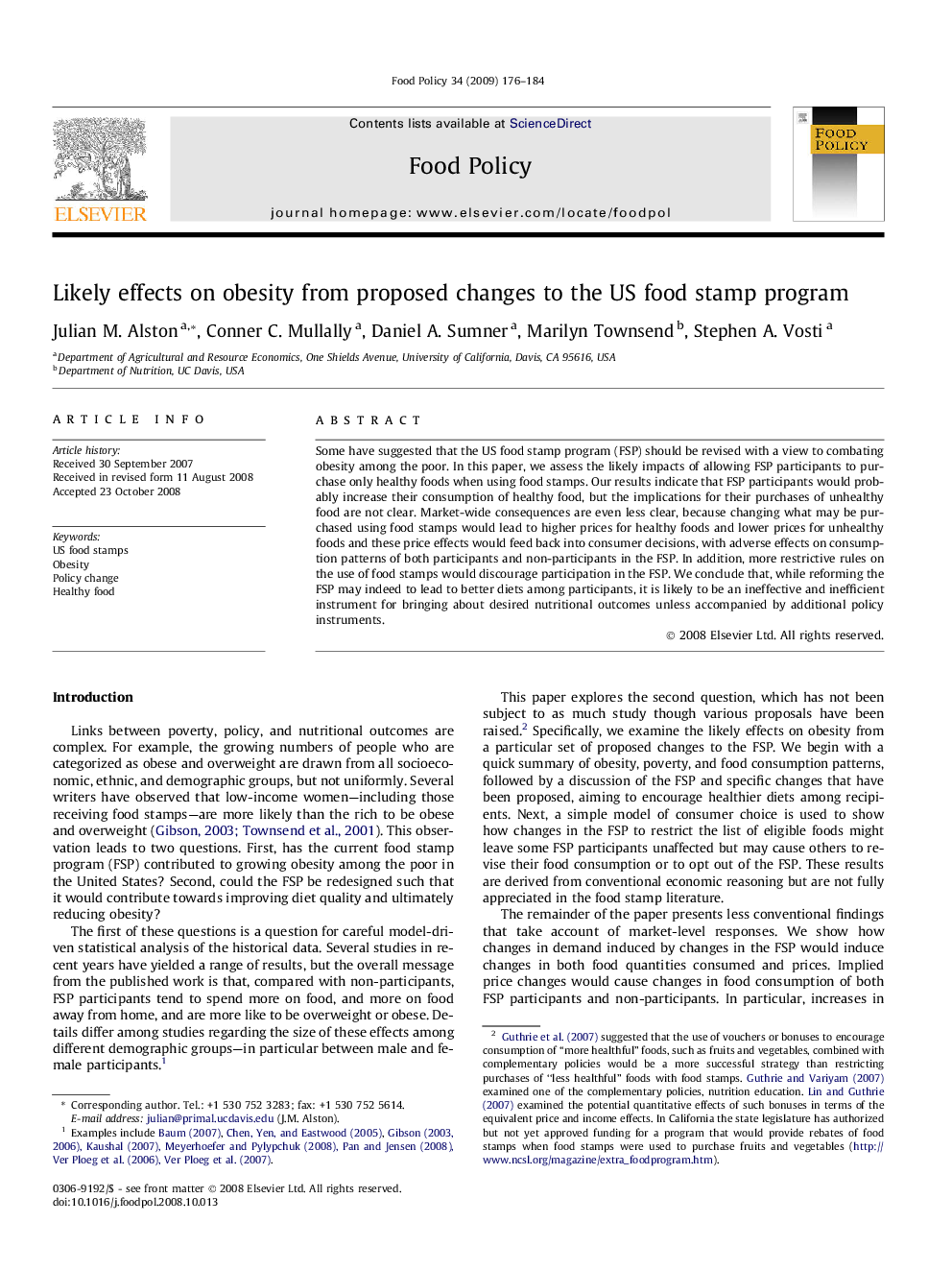| Article ID | Journal | Published Year | Pages | File Type |
|---|---|---|---|---|
| 5071067 | Food Policy | 2009 | 9 Pages |
Abstract
Some have suggested that the US food stamp program (FSP) should be revised with a view to combating obesity among the poor. In this paper, we assess the likely impacts of allowing FSP participants to purchase only healthy foods when using food stamps. Our results indicate that FSP participants would probably increase their consumption of healthy food, but the implications for their purchases of unhealthy food are not clear. Market-wide consequences are even less clear, because changing what may be purchased using food stamps would lead to higher prices for healthy foods and lower prices for unhealthy foods and these price effects would feed back into consumer decisions, with adverse effects on consumption patterns of both participants and non-participants in the FSP. In addition, more restrictive rules on the use of food stamps would discourage participation in the FSP. We conclude that, while reforming the FSP may indeed to lead to better diets among participants, it is likely to be an ineffective and inefficient instrument for bringing about desired nutritional outcomes unless accompanied by additional policy instruments.
Keywords
Related Topics
Life Sciences
Agricultural and Biological Sciences
Food Science
Authors
Julian M. Alston, Conner C. Mullally, Daniel A. Sumner, Marilyn Townsend, Stephen A. Vosti,
